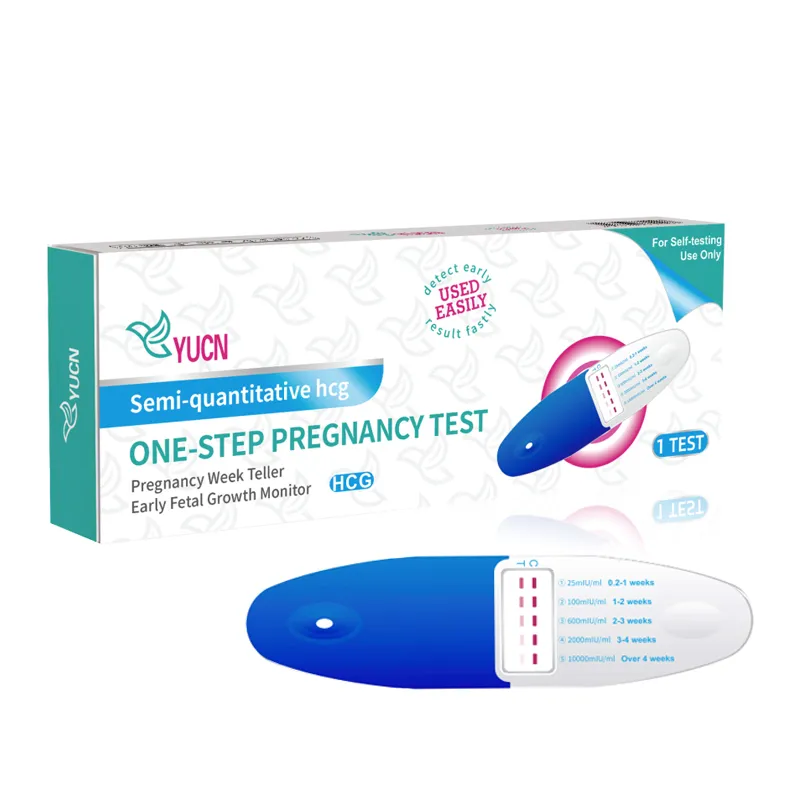nov. . 08, 2024 13:20 Back to list
Suppliers and Pricing Options for Malaria Diagnostic Kits Available Worldwide
Understanding the Pricing and Suppliers of Malaria Test Kits
Malaria remains one of the most significant public health challenges worldwide, particularly in tropical and subtropical regions. Early diagnosis and treatment are crucial in controlling this life-threatening disease, making malaria test kits essential tools in healthcare provision. Over the years, the global market for malaria test kits has expanded, giving rise to numerous suppliers and varying prices. This article explores the factors influencing the pricing of malaria test kits, examines different suppliers, and highlights the importance of access to affordable testing.
The Importance of Malaria Test Kits
Malaria test kits are instrumental in the timely detection of the Plasmodium parasites responsible for malaria. There are primarily two types of test kits Rapid Diagnostic Tests (RDTs) and microscopy-based kits. RDTs are preferred for their speed and ease of use, allowing healthcare providers to diagnose patients quickly, even in remote areas with limited laboratory facilities. The accessibility and availability of these test kits can significantly impact malaria control efforts, especially in endemic regions.
Factors Influencing Prices
The pricing of malaria test kits is influenced by various factors, including
1. Manufacturing Costs The cost of raw materials, labor, and technology used in the production of test kits directly impacts their prices. Higher-quality materials or advanced technologies may lead to increased costs.
2. Regulatory Compliance Test kits must meet safety and efficacy standards set by health authorities. Compliance with these regulations can escalate the production costs, which in turn affects the final pricing.
3. Supplier and Distribution Channels Prices can vary depending on the supplier's distribution networks and the regions where they operate. Local suppliers may offer lower prices due to reduced shipping costs, while international suppliers may charge higher rates to cover logistics and import duties.
4. Market Demand and Competition The level of demand for malaria test kits in specific regions can influence pricing. In areas with higher demand, suppliers may adjust prices according to market conditions. Competition among suppliers also plays a critical role in setting market prices; more competition generally leads to better pricing for consumers.
5. Volume Purchases Many suppliers offer discounts for bulk purchases, making it more affordable for healthcare institutions or governmental organizations to procure larger quantities of test kits.
malaria kit price suppliers

Identifying Suppliers
The global market for malaria test kits comprises various suppliers, ranging from large multinational companies to small local manufacturers. Some well-known suppliers include
- Abbott With a strong presence in the diagnostic market, Abbott produces high-quality RDTs and maintains a robust distribution network worldwide. - SD Biosensor This South Korean company has gained recognition for its affordable and reliable malaria test kits, with a focus on accessibility in developing countries.
- CareStart A brand of Access Bio, CareStart provides rapid malaria test kits that are widely used in numerous healthcare settings.
- Huma Diagnostic This company specializes in developing innovative testing solutions, aiming to improve malaria diagnosis through advanced technologies.
- Local Manufacturers In many endemic regions, local manufacturers play a crucial role in the malaria diagnosis landscape by providing affordable options that cater to the specific needs of the communities they serve.
The Challenge of Affordability
While some suppliers offer affordable malaria test kits, the global disparity in healthcare funding remains a significant barrier. In low-income countries, the cost of test kits can still be prohibitively high, limiting access for patients. Initiatives by global health organizations, such as the World Health Organization and the Global Fund, aim to improve access to affordable diagnostics by facilitating bulk purchasing and distribution to those in greatest need.
Conclusion
As the fight against malaria continues, the accessibility of reliable and affordable test kits is paramount. Understanding the various factors that influence the prices of malaria test kits and recognizing reputable suppliers are key steps in improving healthcare outcomes in endemic regions. It is essential for governments, organizations, and healthcare providers to ensure that these critical diagnostic tools are available for all who need them, thereby enhancing the global response to malaria and saving countless lives.
-
Dengue NS1 Rapid Diagnostic Test Kit
NewsMar.07,2025
-
Dengue NS1 Rapid Diagnostic Test Kit
NewsMar.07,2025
-
Dengue NS1 Rapid Diagnostic Test Kit
NewsMar.07,2025
-
Transferrin Rapid Test Cassette Tumor Marker TF Card
NewsMar.07,2025
-
Malaria Pf Pan Rapid Diagnostic Test Kit
NewsMar.07,2025
-
malaria pf / pan ag rapid test
NewsMar.07,2025

